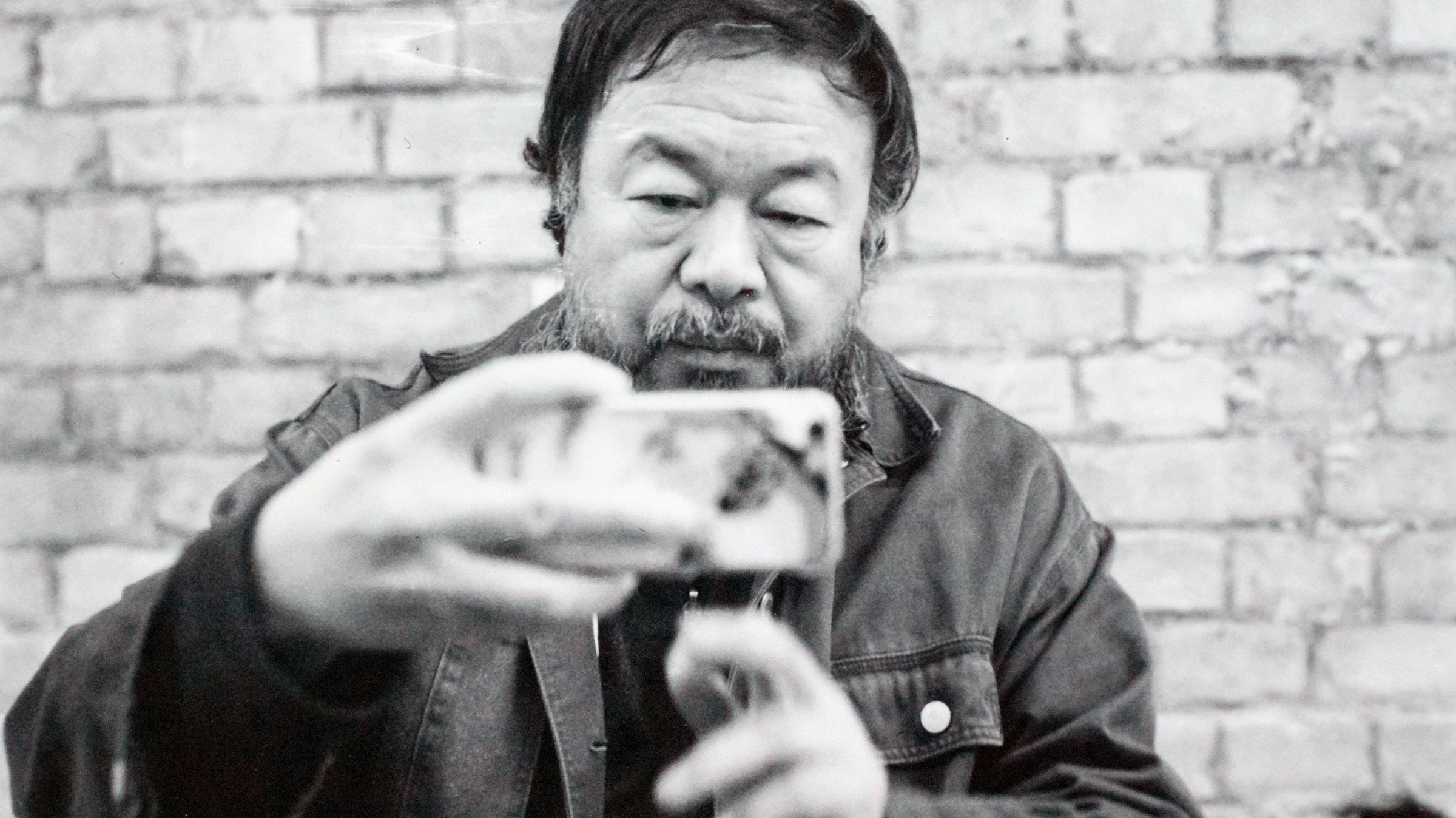The Chinese-born dissident artist has long used social media as an artistic medium, so how are we to interpret his recent selfie with one of Germany’s most xenophobic politicians?
The artist, and self-described “selfie king,” Ai WeiWei recently posed for a picture with a right-wing German politician at a restaurant in Berlin. The politician, Alice Weidel, is the head of the leader of Alternative for Germany (AfD), who apparently asked the Chinese artist for a selfie after confirming that she was, indeed, leader of the same party that had branded immigrant’s “illiterate.”
At a time when any action on social media can be accused of stirring the political pot and deemed insensitive, the artist’s simple act of civility could be viewed as refreshing—perhaps. But this wasn’t a perspective many people shared on Twitter, from either side of political spectrum. Supporters of Weidel’s controversial party branded the artist as a “leftist sheep” whereas others asked if the Weiwei was now in favor of AfD’s immigration policies, including opposing Germany’s open-door policy toward migrants.
#AiWeiwei ist in der Hauptstadt!!!! Ich hätte mich fast nicht getraut, ihn nach einem Selfie zu fragen 😉 pic.twitter.com/UxOSWeDhc2
— Alice Weidel (@Alice_Weidel) April 18, 2018
Weiwei, for his part, defended the selfie in a statement sent to Frieze. “I don’t believe that differences in political views or values between people should act as a barrier in communication. My efforts are in tearing down those boundaries,” he said. “Alice Weidel is a democratically elected politician and has the right to freely express her political views.” Weiwei quickly pivoted calling out those who might seek to judge his act of self expression, adding, “If you cannot tolerate free expression, your political views are even more terrifying.”
After winning seats in the Germany’s parliament, the Bundestag, in 2017, the AfD party has symbolized nationalism’s resurgence in Europe writ large, with a singular anti-immigration message. The appointment of Weidel, a 38-year-old economist who lives in Switzerland with her female partner, to a party dominated by men has been touted by Weidel, herself, that the AfD is an open-minded political body, when in fact it’s the mouth piece for a hard-right, anti-immigration platform advocating for the end of Germany’s asylum laws.
During her tenure at the top of the AfD, Weidel has refused to distance herself from past xenophobic and racist remarks she’s made, and has been very vocal about her concerns about immigration, choosing to demonize Islam and warn against a burgeoning war on the West. In an email obtained by Die Welt in 2013 Weidel railed against “foreigners” like the Romas, Sinti, and Arabs for “flooding Germany” thanks to the country’s destruction of “pigs” who were “puppets of the allies.”
Considering that the dissident art of Weiwei, who extensively focuses on the experiences of refugees, he himself being a refugee of his authoritarian country of birth, China, the selfie was bound to be controversial. This past fall, Weiwei produced Human Flow, a film about the plight of immigrants. In a comment piece for the Guardian in February, the artist pushed back against political movements, like the AfD, that try to brand immigrants as anything but victims escaping a life of poverty or warfare: “A common argument is that many of the people who try to reach the West are economic migrants who wish to take unfair advantage of its prosperity.”
Weiwei has said previously that “Twitter is art,” and that social media is one of his best artistic tools. Just last year, WeiWei took 30,000 selfies for an exhibit at the Museum of Contemporary Photography in Chicago that featured pictures of government surveillance and the artist in the Forbidden City during the SARS epidemic of 2003. The question of Weiwei’s picture with Weidel is the unspoken contradiction at the heart of his “artistic” use of social media: It’s either a medium where images can be subjected to critique, political and aesthetic, or it’s what many suspect it to be—a landscape of visual meaninglessness. It’s a condition the artist Hito Steyerl once described as “opacity in broad daylight”—where every action on the internet can be seen but nothing is communicated. For Weiwei, who proclaimed to the New Yorker‘s Evan Osnos this past fall that “there are no bad selfies,” the opacity of his visual message has never been clearer.







